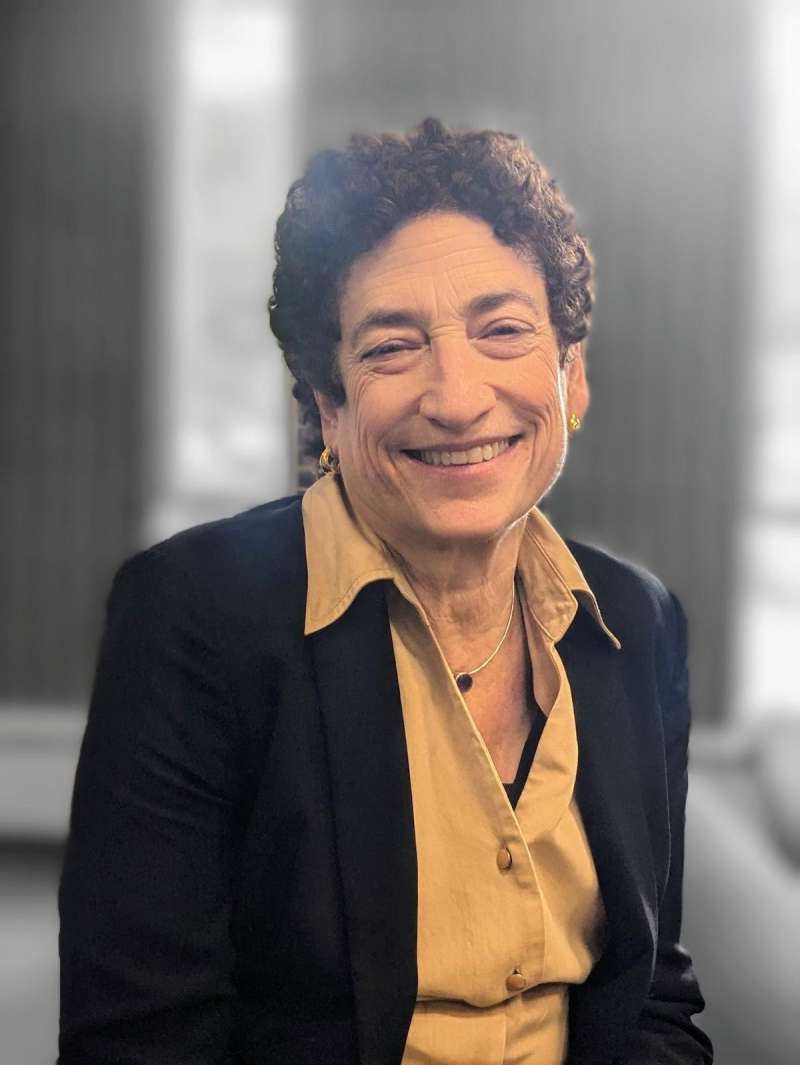Engaging in Dialogue: Naomi Oreskes and the Red State Pledge
Engaging in Dialogue: Naomi Oreskes and the Red State Pledge High Plains Reader


brie.storsved@gmail.com
Naomi Oreskes: A Champion for Climate Change
By Brie Storsved

Introduction
Naomi Oreskes, a highly esteemed professor of the history of sciences at Harvard University, is a recognized authority in the field of anthropogenic climate change. With an impressive resume that includes authoring nine books and publishing over 150 scholarly articles, Oreskes has made significant contributions to the study of climate change and sustainability.
Academic Achievements
Oreskes’ notable books, such as “Why Trust Science?” (2019) and “Science on a Mission: How Military Funding Shaped What We Do and Don’t Know about the Ocean” (2021), have garnered international recognition. Her work has been translated into multiple languages and even adapted into a documentary film. In recognition of her contributions, Oreskes has received prestigious awards, including a Guggenheim Fellowship in 2018 and the British Academy Medal in 2019.
Engaging with Diverse Perspectives
Oreskes’ “Red State Pledge” exemplifies her dedication to engaging with individuals who hold different perspectives. She believes that by understanding diverse viewpoints, she can become a better scholar and a better human being. This commitment to dialogue and inclusivity is crucial in addressing the complex challenges posed by climate change.
Activism and Advocacy
Beyond her academic achievements, Oreskes is also an activist and a leading voice in the fight against climate change. She recently visited Valley City State University in North Dakota to deliver a presentation and engage in one-on-one discussions with students. Oreskes actively supports legal actions against the fossil fuel industry for their role in contributing to climate change-related deaths.
Challenges and Opposition
Oreskes has faced opposition and personal attacks from the fossil fuel industry due to her work on the reality of climate change. In her book “Merchants of Doubt,” she exposes efforts to suppress scientific evidence. She believes that the political nature of the problem and resistance to change hinder progress in addressing climate change.
Taking Action
Oreskes emphasizes the importance of individual action in combating climate change. She advises people to join organizations and engage in conversations with their parents about the issue. While it may be challenging to convince skeptical parents, Oreskes asserts that ignoring the reality of climate change is a disservice to future generations.
Effective Communication and Impact
Oreskes recognizes the power of effective communication in conveying scientific evidence. She acknowledges that the impact of her work may not always be immediately apparent but believes that even a single person understanding and acting upon the evidence is a step in the right direction. Oreskes likens her work to a message in a bottle, hoping that someone will receive her S.O.S. and take action.
Conclusion
Naomi Oreskes’ contributions to the study of climate change and her commitment to engaging with diverse communities demonstrate her dedication to scientific truth and the urgent need to address climate change collectively. By shedding light on efforts to suppress scientific evidence, she encourages the public to critically evaluate information from various sources. Despite facing opposition and personal attacks, Oreskes remains steadfast in her mission to secure a sustainable future for humanity. Through her work and engagements, she inspires others to take action and make their own contributions to the fight against climate change.
SDGs, Targets, and Indicators
-
SDG 13: Climate Action
- Target 13.1: Strengthen resilience and adaptive capacity to climate-related hazards and natural disasters
- Target 13.2: Integrate climate change measures into national policies, strategies, and planning
- Target 13.3: Improve education, awareness-raising, and human and institutional capacity on climate change mitigation, adaptation, impact reduction, and early warning
- Target 13.a: Implement the commitment undertaken by developed-country parties to the United Nations Framework Convention on Climate Change to a goal of mobilizing jointly $100 billion annually by 2020 from all sources to address the needs of developing countries in the context of meaningful mitigation actions and transparency on implementation and fully operationalize the Green Climate Fund through its capitalization as soon as possible
-
SDG 4: Quality Education
- Target 4.7: By 2030, ensure that all learners acquire the knowledge and skills needed to promote sustainable development, including, among others, through education for sustainable development and sustainable lifestyles, human rights, gender equality, promotion of a culture of peace and non-violence, global citizenship, and appreciation of cultural diversity and of culture’s contribution to sustainable development
The article discusses the work of Naomi Oreskes in relation to climate change and her commitment to engaging with diverse communities. The following SDGs, targets, and indicators can be identified based on the article’s content:
1. Which SDGs are addressed or connected to the issues highlighted in the article?
The SDGs that are addressed or connected to the issues highlighted in the article are:
- SDG 13: Climate Action
- SDG 4: Quality Education
2. What specific targets under those SDGs can be identified based on the article’s content?
The specific targets under the identified SDGs are:
- Target 13.1: Strengthen resilience and adaptive capacity to climate-related hazards and natural disasters
- Target 13.2: Integrate climate change measures into national policies, strategies, and planning
- Target 13.3: Improve education, awareness-raising, and human and institutional capacity on climate change mitigation, adaptation, impact reduction, and early warning
- Target 13.a: Implement the commitment undertaken by developed-country parties to the United Nations Framework Convention on Climate Change to a goal of mobilizing jointly $100 billion annually by 2020 from all sources to address the needs of developing countries in the context of meaningful mitigation actions and transparency on implementation and fully operationalize the Green Climate Fund through its capitalization as soon as possible
- Target 4.7: By 2030, ensure that all learners acquire the knowledge and skills needed to promote sustainable development, including, among others, through education for sustainable development and sustainable lifestyles, human rights, gender equality, promotion of a culture of peace and non-violence, global citizenship, and appreciation of cultural diversity and of culture’s contribution to sustainable development
3. Are there any indicators mentioned or implied in the article that can be used to measure progress towards the identified targets?
The article does not explicitly mention any indicators that can be used to measure progress towards the identified targets. However, it does mention the following information that can be used as indicators:
- The number of people affected by climate-related hazards and natural disasters
- The extent to which climate change measures are integrated into national policies, strategies, and planning
- The level of education, awareness, and capacity on climate change mitigation, adaptation, impact reduction, and early warning
- The amount of funding mobilized annually to address the needs of developing countries in the context of meaningful mitigation actions
- The level of knowledge and skills acquired by learners in promoting sustainable development, including education for sustainable development and sustainable lifestyles
4. SDGs, Targets, and Indicators
| SDGs | Targets | Indicators |
|---|---|---|
| SDG 13: Climate Action | Target 13.1: Strengthen resilience and adaptive capacity to climate-related hazards and natural disasters | – Number of people affected by climate-related hazards and natural disasters |
| SDG 13: Climate Action | Target 13.2: Integrate climate change measures into national policies, strategies, and planning | – Extent to which climate change measures are integrated into national policies, strategies, and planning |
| Target 13.3: Improve education, awareness-raising, and human and institutional capacity on climate change mitigation, adaptation, impact reduction, and early warning | – Level of education, awareness, and capacity on climate change mitigation, adaptation, impact reduction, and early warning | |
| Target 13.a: Implement the commitment undertaken by developed-country parties to the United Nations Framework Convention on Climate Change to a goal of mobilizing jointly $100 billion annually by 2020 from all sources to address the needs of developing countries in the context of meaningful mitigation actions and transparency on implementation and fully operationalize the Green Climate Fund through its capitalization as soon as possible | – Amount of funding mobilized annually to address the needs of developing countries in the context of meaningful mitigation actions | |
| SDG 4: Quality Education | Target 4.7: By 2030, ensure that all learners acquire the knowledge and skills needed to promote sustainable development, including, among others, through education for sustainable development and sustainable lifestyles, human rights, gender equality, promotion of a culture of peace and non-violence, global citizenship, and appreciation of cultural diversity and of culture’s contribution to sustainable development | – Level of knowledge and skills acquired by learners in promoting sustainable development |
Behold! This splendid article springs forth from the wellspring of knowledge, shaped by a wondrous proprietary AI technology that delved into a vast ocean of data, illuminating the path towards the Sustainable Development Goals. Remember that all rights are reserved by SDG Investors LLC, empowering us to champion progress together.
Source: hpr1.com

Join us, as fellow seekers of change, on a transformative journey at https://sdgtalks.ai/welcome, where you can become a member and actively contribute to shaping a brighter future.







